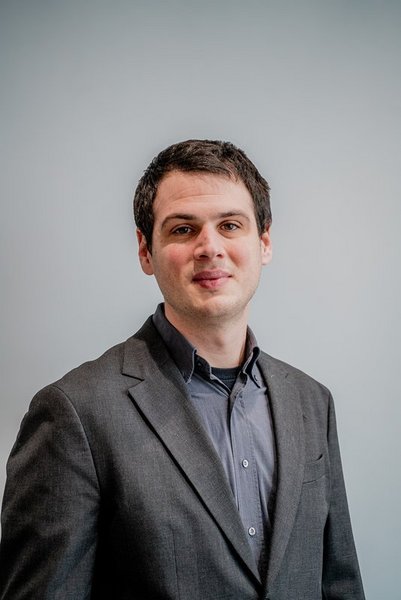
by Ankita Atrey
3 February 2025 · 4 min read
In November 2024, Stratis Skoulakis joined Aarhus University as a Tenure-Track Assistant Professor in the Computational Complexity and Game Theory group. His research focuses on the mathematical foundations of Game Theory, Machine Learning, and Optimization, with a particular interest in developing and analyzing decision-making algorithms for fundamental economic settings such as auctions, markets, and traffic systems.
Academic Background
Stratis' academic journey began with a diploma in Electrical and Computer Engineering from the National Technical University of Athens. He then pursued a master’s in Algorithms and Mathematical Logic at the National and Kapodistrian University of Athens. His passion for theoretical computer science led him to complete a PhD at the National Technical University of Athens, specializing in Algorithmic Game Theory.
His research path then took him to the Singapore University of Technology and Design (SUTD), where he worked as a Postdoctoral Researcher. At SUTD, his focus was on Algorithmic Game Theory, particularly in areas like Online Decision Making Algorithms, Game Theory, and Multi-agent Systems. After an exciting research stint in Singapore, he moved to the École Polytechnique Fédérale de Lausanne (EPFL) as a Postdoctoral Researcher. There, he delved into Optimization for Machine Learning, Theoretical Foundations of Machine Learning, Online Learning, and Game Theory, further enriching his expertise in these cutting-edge fields. His diverse background in algorithms, game theory, and machine learning makes him well-equipped to contribute to the growing field where these areas intersect.
Congratulations on being awarded the prestigious Villum Young Investigator grant by VILLUM FONDEN! Could you tell us about the project this grant will fund?
Thank you! I am excited to receive the Villium Young Investigator grant. This 9M DKK grant will fund my project, Developing an Online Learning Approach to Multi-agent Systems: Game Dynamics and Equilibria. The focus of the project is on combining Game Theory and Online Learning to improve our understanding of multi-agent systems—scenarios where multiple agents interact, such as in traffic management, energy distribution, or blockchain technologies.
The project aims to provide valuable insights and tools for optimizing economic and social systems. Additionally, it will advance the development of algorithms that can be applied in contemporary AI applications, including training Generative Adversarial Networks and creating socially responsible machine learning models.
Could you tell us a bit about your current research?
I am particularly interested in how agents can use machine learning and dynamic decision-making algorithms in various economic and social settings. My focus is on designing these algorithms and understanding their microscopic behavior once adopted by competitive entities in a competitive environment. In the next few years, I plan to explore how we can describe fundamental microeconomic phenomena through the lens of machine learning algorithms, focusing on their dynamic behavior in interactive settings. One of my key interests is applying these ideas to equilibrium computation, blockchain technology, and strategic interactions in various social and economic contexts.
Do you foresee any challenges in this field?
Yes, there are certainly challenges. On the theoretical side, the mathematical logic behind these algorithms can be quite complex. However, perhaps even more challenging is understanding the real-world scenarios and knowing which algorithms will work in which settings. This requires a deep understanding of both the underlying theory and the practical applications.
How do you think your research will impact society?
The impact of my research is significant as machine learning algorithms are increasingly integrated into daily life, particularly in areas like self-driving cars and automated trading/pricing algorithms. These systems need to interact seamlessly with each other and for various social and economic reasons, it is important to understand the effects of these interactions between machine learning algorithms.
What do you like to do when you’re not working?
Outside of work, I enjoy activities like hiking and swimming. I also love playing the guitar, which is a great way to relax and unwind.
What motivated you to choose Aarhus University?
Aarhus University has a strong academic reputation, and Denmark, in general, offers a great work-life balance. The research environment here is very supportive of fundamental research, which aligns well with my interests. I also appreciate the strong focus on collaboration and interdisciplinary work in the university's community.